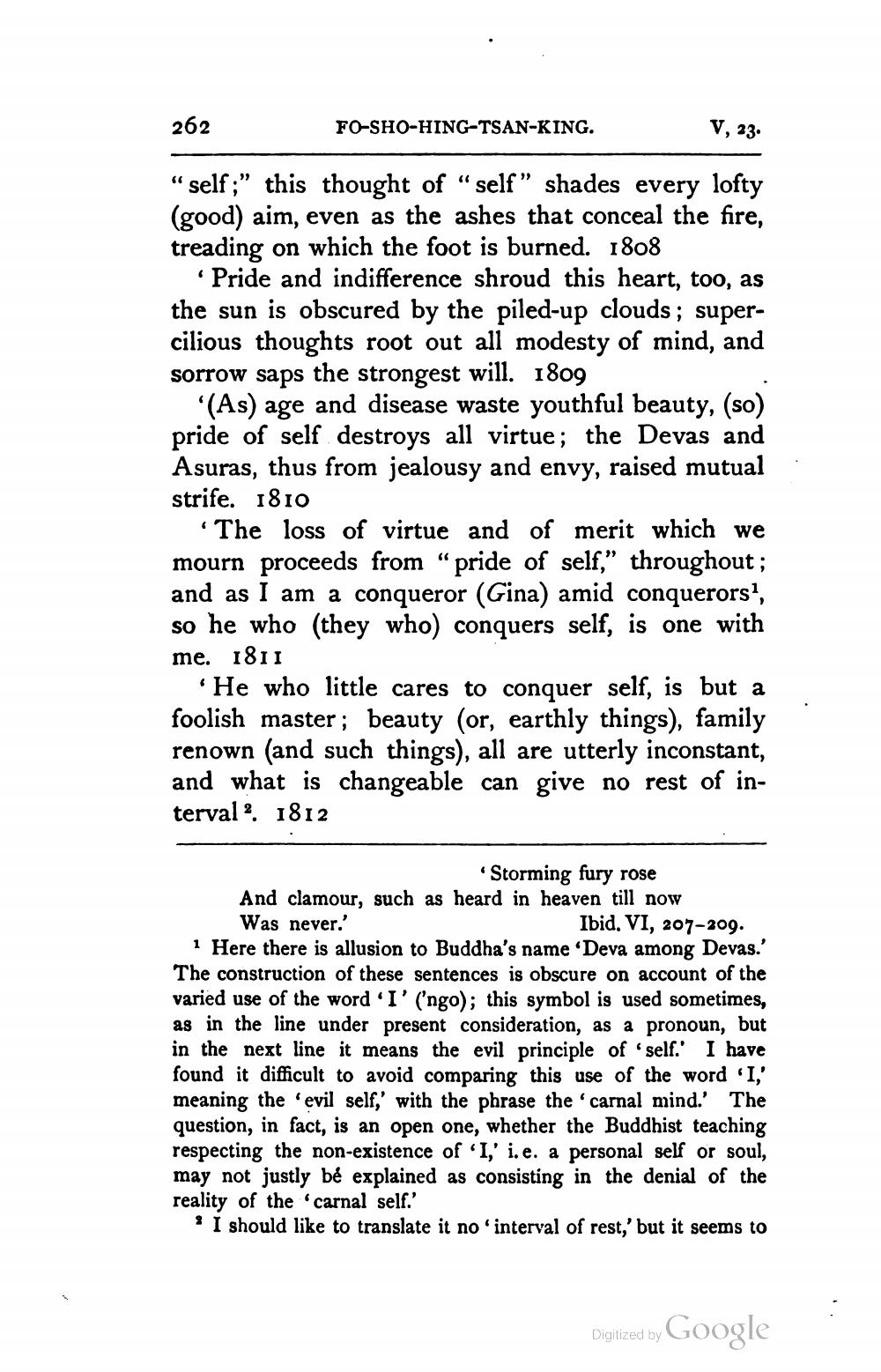________________
262
FO-SHO-HING-TSAN-KING.
V, 23.
“self;" this thought of “self” shades every lofty (good) aim, even as the ashes that conceal the fire, treading on which the foot is burned. 1808
Pride and indifference shroud this heart, too, as the sun is obscured by the piled-up clouds; supercilious thoughts root out all modesty of mind, and sorrow saps the strongest will. 1809
(As) age and disease waste youthful beauty, (so) pride of self destroys all virtue; the Devas and Asuras, thus from jealousy and envy, raised mutual strife. 1810
The loss of virtue and of merit which we mourn proceeds from "pride of self,” throughout; and as I am a conqueror (Gina) amid conquerors, so he who (they who) conquers self, is one with me. 1811
"He who little cares to conquer self, is but a foolish master; beauty (or, earthly things), family renown (and such things), all are utterly inconstant, and what is changeable can give no rest of interval ? 1812
Storming fury rose And clamour, such as heard in heaven till now Was never.'
Ibid. VI, 207–209. 1 Here there is allusion to Buddha's name 'Deva among Devas.' The construction of these sentences is obscure on account of the varied use of the word 'I' ('ngo); this symbol is used sometimes, as in the line under present consideration, as a pronoun, but in the next line it means the evil principle of self.' I have found it difficult to avoid comparing this use of the word 'I,' meaning the evil self,' with the phrase the 'carnal mind.' The question, in fact, is an open one, whether the Buddhist teaching respecting the non-existence of 'I,' i.e. a personal self or soul, may not justly be explained as consisting in the denial of the reality of the 'carnal self.'
I should like to translate it no interval of rest,' but it seems to
Digitized by Google




